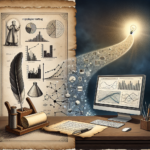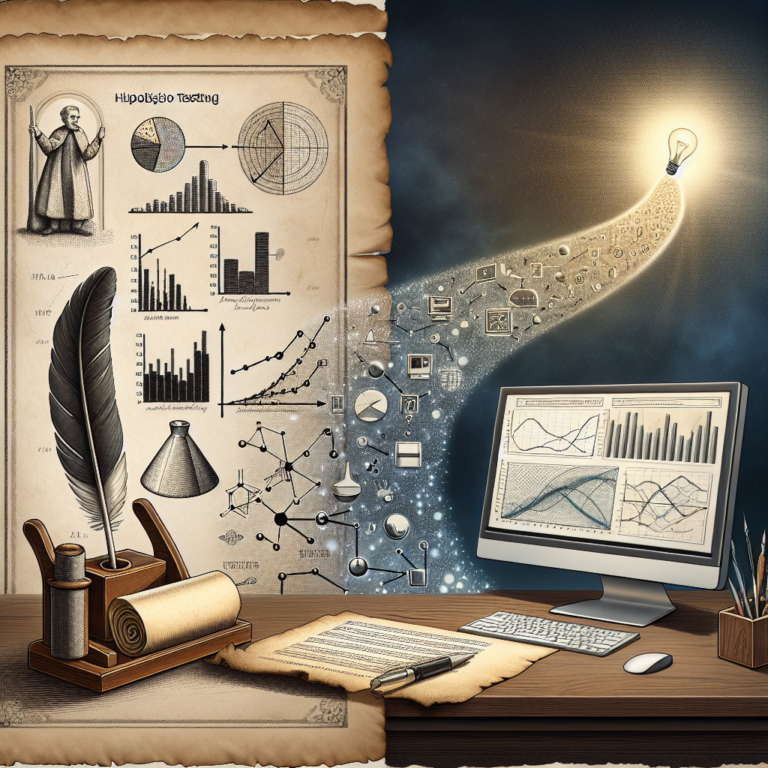
Introduction
In an era where technological advancements and scientific breakthroughs define the progress of society, the battle between innovation and ethics becomes ever more pronounced. The pursuit of knowledge often raises profound ethical dilemmas that challenge our moral compass and societal values. As we delve into "The Cost of Knowledge: Ethical Dilemmas in Cutting-Edge Research," we’re invited to examine not only the benefits that modern research brings but also the hidden costs that come with it. From controversial genetic editing technologies to artificial intelligence frameworks, this article aims to uncover the ethical landscapes of cutting-edge research while evaluating its genuine impacts on humanity.
The Dual Faces of Progress
Innovation and Ethical Responsibility
Cutting-edge research is a double-edged sword. On one side lies the potential to create groundbreaking solutions to problems like disease, hunger, and climate change. On the other side rests the responsibilities that come with such power. The juxtaposition of innovation and ethical responsibilities presents a fertile ground for dilemmas that society must evaluate collectively.
Case Study: CRISPR and Gene Editing
The advent of CRISPR technology revolutionized genetics, allowing scientists to edit genes with unprecedented precision. While its potential to eradicate genetic disorders holds promise, ethical questions loom large. Is it right to make permanent changes to the human genome? What implications does this have for future generations? The discussion surrounding CRISPR illustrates the kinds of ethical dilemmas that arise when innovation outpaces our moral frameworks.
The Human Factor
As we explore the cost of knowledge, it’s crucial to consider the human element in research. Scientists, researchers, and participants often find themselves navigating complex ethical terrains. The relationship between researcher and subject can lead to conflicts when the pressure to advance knowledge competes with the need for ethical conduct.
Case Study: Medical Trials for Pharmaceuticals
Consider medical trials conducted for new pharmaceuticals. The urgent need for a breakthrough medication often leads to the inclusion of vulnerable populations. The ethical dilemma here lies in balancing the quest for knowledge against the potential for exploitation. Are we sacrificing the welfare of the few for the advancement of the many? The cost of knowledge weighs heavily in these circumstances.
The Economic Cost of Knowledge
Funding and Resource Allocation
Research funding plays a critical role in determining which areas of study flourish and which fall by the wayside. As institutions prioritize returns on investment, the ethical dilemmas surrounding the allocation of resources become apparent. Do we prioritize profit-driven research that serves corporate interests, or do we invest in studies that address urgent societal needs?
Table 1: Funding Allocation in Research Areas
| Research Area | Funding (in Millions) | Potential Ethical Dilemmas |
|---|---|---|
| Cancer Research | 500 | Access to treatments, trial ethics |
| Renewable Energy | 300 | Profit-oriented motives |
| Genetic Engineering | 450 | Long-term implications on humanity |
In this table, the stark contrast in funding allocation reflects the ethical dilemmas faced in cutting-edge research. As resources become increasingly scarce, prioritizing one field often means neglecting others, raising ethical questions about whose interests we serve.
Commercialization of Research
The commercialization of scientific research also leads to ethical dilemmas. When knowledge becomes commodified, issues such as patenting, accessibility, and monopolistic practices come into play. Is it ethical to restrict access to potentially life-saving technologies for profit?
The Interplay of Public Opinion and Ethical Dilemmas
Societal Expectations
Public perception plays a vital role in shaping the ethical landscape of cutting-edge research. As society grapples with rapid advancements, the pressure on researchers to maintain transparency and ethical integrity grows. Any perceived missteps can lead to societal backlash against an entire field of study.
Case Study: Vaccine Development in a Pandemic
The development of COVID-19 vaccines exemplifies this dynamic. While the science behind the vaccines was applauded, ethical questions surrounding expedited trials, transparency, and public trust became front and center. The cost of knowledge in this case was double-edged; while lives were saved, ethical scrutiny intensified.
Navigating Ethical Frameworks
Establishing ethical frameworks is essential for guiding the practices of researchers. From institutional review boards (IRBs) to comprehensive ethical guidelines, these structures aim to provide a moral roadmap. However, ethical dilemmas often arise in gray areas not accounted for in rigid frameworks, highlighting the need for ongoing dialogue about ethical issues.
The Role of Technology in Ethical Dilemmas
Artificial Intelligence and Its Discontents
Artificial Intelligence (AI) is a frontier that is reshaping the research landscape. As AI becomes increasingly sophisticated, ethical concerns emerge, particularly regarding bias and data privacy. The cost of knowledge when utilizing AI for research must consider the implications of biased algorithms and the potential for privacy violations.
Case Study: Bias in AI Algorithms
Recent studies have shown that AI systems can perpetuate biases present in their training data. The ethical dilemma here is significant: how can researchers ensure fairness and equity in systems designed to assist humanity? The responsibility lies not just with the technology but with those who develop and deploy it.
Data Sharing and Privacy
The collection and sharing of data are integral to modern research, yet they raise serious ethical concerns. Balancing the need for data to drive progress with the rights of individuals concerning their personal information creates a complex ethical landscape.
Global Perspectives on Ethical Dilemmas
Ethical Standards Around the World
Ethical standards vary significantly across cultures and countries, leading to dilemmas in international collaborations. The cost of knowledge extends beyond research; it encompasses the diverse ethical considerations that arise when different cultural norms clash.
Case Study: Stem Cell Research
Stem cell research often faces legislative hurdles based on ethical perceptions varying from country to country. While some nations embrace the potential for cures, others impose strict regulations based on moral beliefs. This divergence illustrates the ethical dilemmas encountered in cutting-edge research on a global scale.
Conclusion
As we conclude our journey exploring "The Cost of Knowledge: Ethical Dilemmas in Cutting-Edge Research," it becomes clear that the pursuit of knowledge is not a straightforward path. The ethical dilemmas faced by researchers and society at large raise crucial questions about responsibility, fairness, and the future of innovation.
Ultimately, striking a balance between advancing knowledge and adhering to ethical standards is an ongoing challenge that requires collective action and dialogue. To be at the forefront of ethical research, scientists, researchers, and society must engage in discussions that transcend their immediate fields of expertise, ensuring that our future advancements benefit all of humanity.
FAQs
1. What are ethical dilemmas in research?
Ethical dilemmas in research refer to situations where researchers face conflicting moral principles, making it difficult to determine the right course of action.
2. Why is ethics important in cutting-edge research?
Ethics ensures that research is conducted responsibly, protecting the rights and welfare of participants and communities, and maintaining public trust.
3. How can researchers ensure ethical practices?
Researchers can implement ethical guidelines, seek Institutional Review Board (IRB) approvals, and engage in open dialogues with stakeholders.
4. What role does public opinion play in research ethics?
Public opinion influences research priorities and practices, shaping the ethical landscape by holding researchers accountable for their actions.
5. How do international differences affect research ethics?
Cultural variations can lead to different ethical standards, causing dilemmas in international research collaborations where expectations may conflict.
In reflection, every step taken in the vast landscape of cutting-edge research carries profound implications. Let us collectively navigate the complexities, ensuring that "The Cost of Knowledge" serves humanity positively and ethically.















